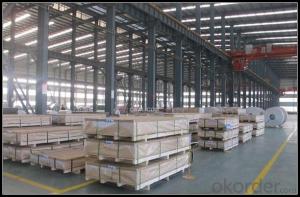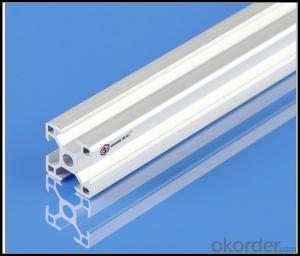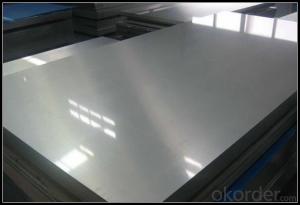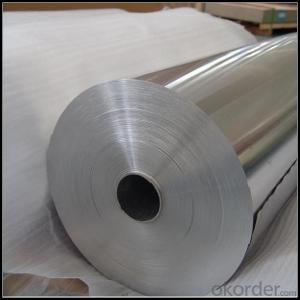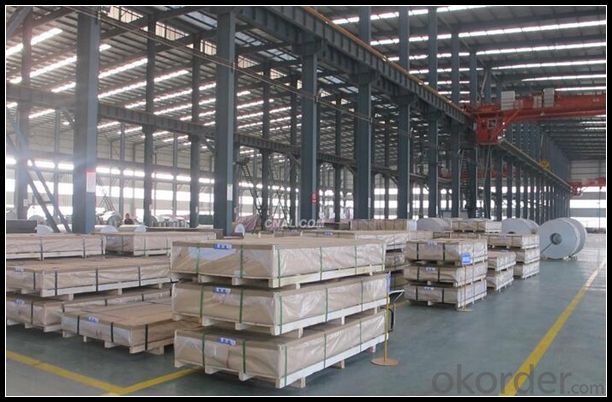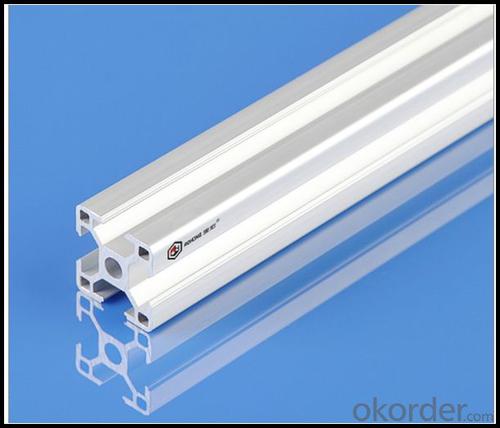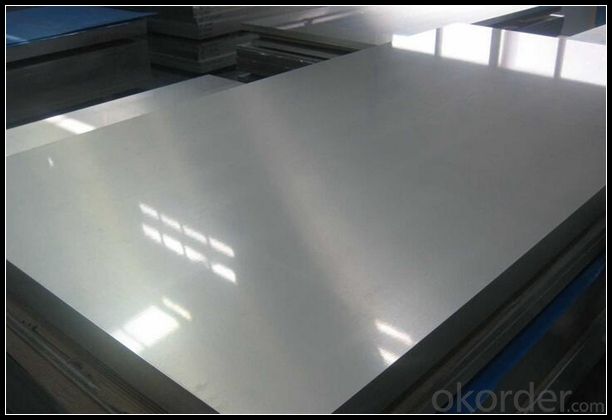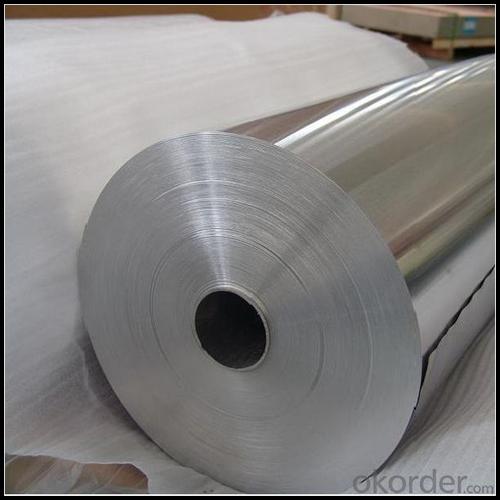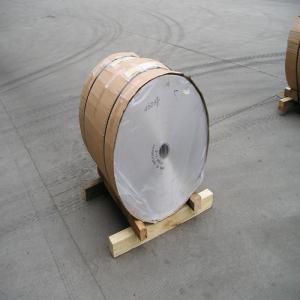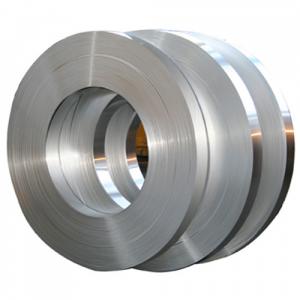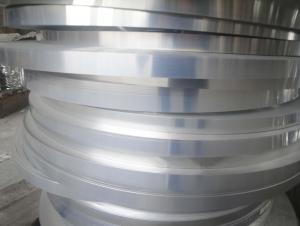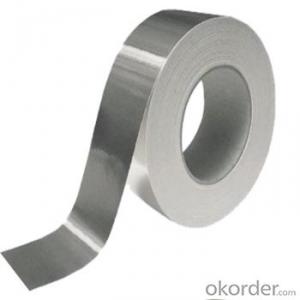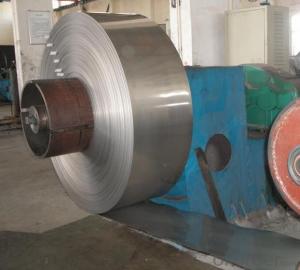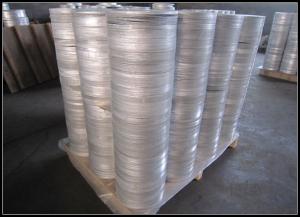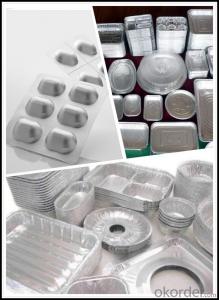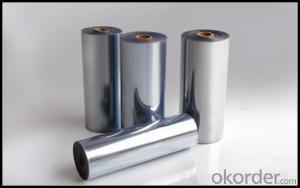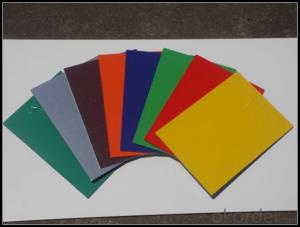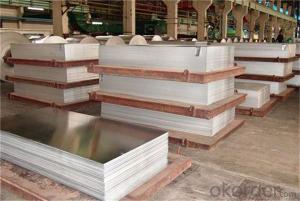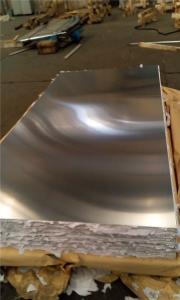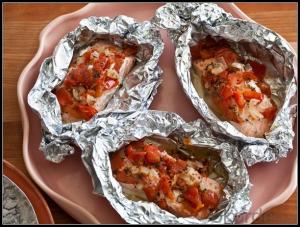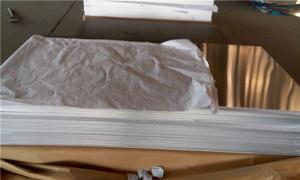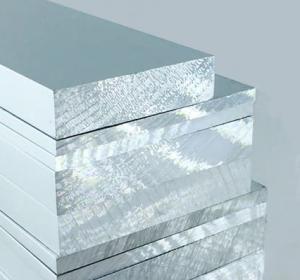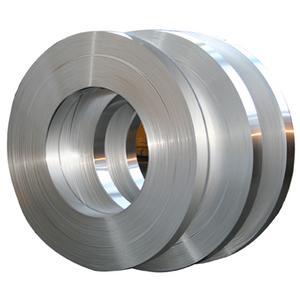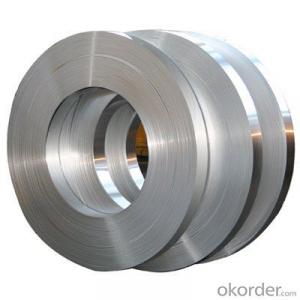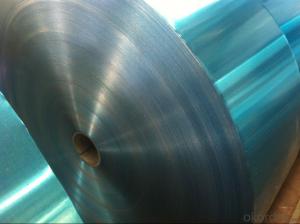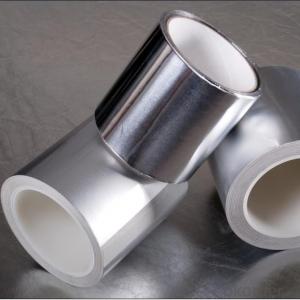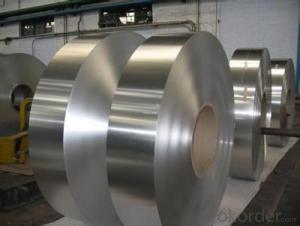Aluminum Sheet Metal Strips 5052 H32 with Different Specifications
- Loading Port:
- Tianjin
- Payment Terms:
- TT OR LC
- Min Order Qty:
- 1 m.t.
- Supply Capability:
- 4999 m.t./month
OKorder Service Pledge
OKorder Financial Service
You Might Also Like
Specification
1. Specification of Aluminum
1) Alloy | 1050, 1060,1100, 3003 3004 3105 3005 5005 5052 etc |
2) Temper | O/H12/H14/H1/H18/H32/H34/H36/H38//H111/H112/H116/H321/T6/T651/T3/T351 etc |
3) Thickness | 0.1mm to 6mm |
4) Width | 20mm to 3300mm |
5) Coil weight | 100kgs to 6 tons depends on actual requirement |
6) Core material | Aluminum alloy |
7) Coil Inner diameter | 76mm, 152mm,or as required |
2. Application of Aluminum
(1).Interior: General use shutters, doors...
(2).Exterior: renovations...
(3).Advertisement: fascia, shop fronts...
3. Feature of Aluminum
Because aluminium is abundant and most of its derivatives exhibit low toxicity, the compounds of aluminium enjoy wide and sometimes large-scale applications.
4. Image of Aluminum
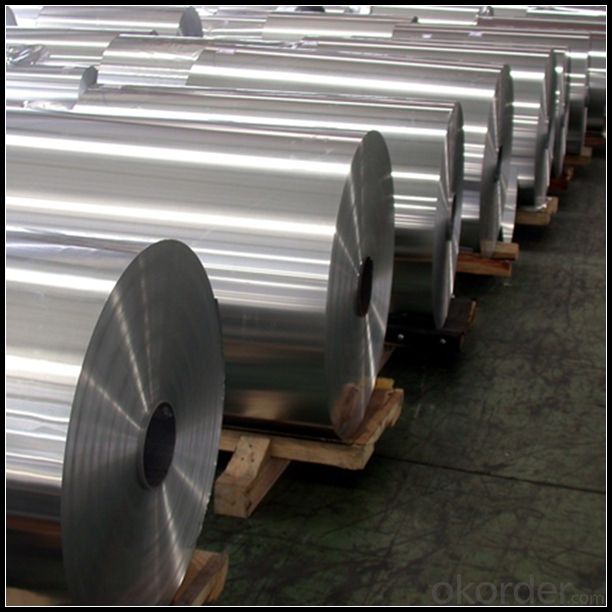
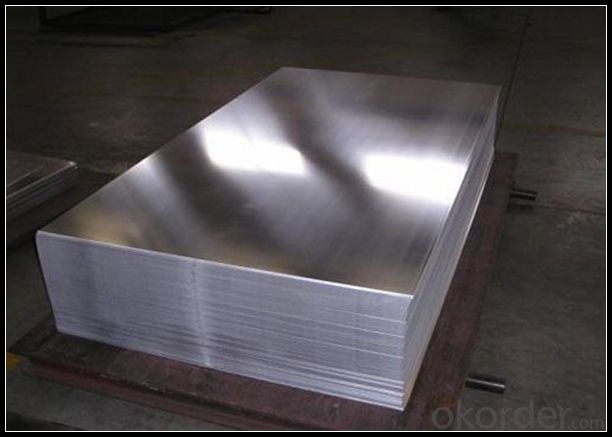
5. Our Service
1. Reply your enquiry in 24 working hours. |
2. OEM, buyer design, buyer label services provided. |
3. Exclusive and unique solution can be provide to our customer by our well traned and professional engineers and staffs. |
4. We can provide free sample for your check |
5. We have the certification of ISO 9001 |
6. Timely delivery |
7. Special discount and protection of sales area provided to our distributor. |
8. Good after-sale service. |
6. FAQ
Q: What is the produce prase? | ||||
A: Normally it would be 40days after received your deposit. | ||||
Q: Can you provide free samples? | ||||
A: Yes, free samples will be sent to you on freight at destination. |
- Q: Is it possible to utilize aluminum strips for creating signs or banners?
- <p>Yes, you can use aluminum strips to make signs or banners. Aluminum is lightweight, durable, and resistant to weather, making it a popular choice for outdoor signage. It can be cut, bent, and shaped easily to create various designs. Additionally, aluminum strips can be painted or printed on, allowing for customization with text and graphics. However, ensure that the aluminum is of the appropriate thickness and quality for your specific project to maintain its structural integrity and longevity.</p>
- Q: This question asks about the strength or durability of aluminum strips, which are commonly used in various industries.
- <p>Aluminum strips are known for their strength-to-weight ratio, offering a high level of strength relative to their weight. They can withstand significant tensile loads and are highly resistant to corrosion. The exact strength of an aluminum strip depends on its alloy composition, thickness, and temper. For instance, 6061-T6 aluminum, a common alloy, has a yield strength of approximately 276 MPa (40,000 psi) and a tensile strength of around 310 MPa (45,000 psi). Aluminum strips are also ductile, allowing them to be bent and shaped without breaking. Their strength makes them suitable for applications in construction, transportation, and aerospace industries.</p>
- Q: Inquiring about the durability of aluminum strips.
- <p>Aluminum strips are known for their durability. They are resistant to corrosion and weathering, making them suitable for long-term use in various environments. Their strength and light weight also contribute to their durability, allowing them to withstand significant stress without breaking. However, their longevity can be affected by factors such as the quality of the aluminum, the manufacturing process, and the specific conditions they are exposed to. Proper maintenance and handling can further enhance their durability.</p>
- Q: Are aluminum strips suitable for manufacturing automotive components?
- <p>Yes, aluminum strips are commonly used for automotive parts due to their lightweight, high strength, and corrosion resistance. They are utilized in various components such as engine parts, body panels, and suspension systems to reduce weight and improve fuel efficiency. Additionally, aluminum's recyclability makes it an environmentally friendly choice for the automotive industry.</p>
- Q: What are the safety regulations concerning the use of aluminum strips in construction?
- <p>Yes, safety regulations apply to the use of aluminum strips in construction work. These regulations vary by country and region but generally include adherence to material standards, proper handling and installation procedures, and compliance with electrical and fire safety codes. For instance, in the United States, the Occupational Safety and Health Administration (OSHA) sets guidelines for safe construction practices, which may include specific requirements for using aluminum strips. Additionally, the American Society for Testing and Materials (ASTM) provides material standards for aluminum strips used in construction. It is crucial to consult local building codes and industry standards to ensure compliance with all applicable safety regulations when using aluminum strips in construction projects.</p>
- Q: Is it possible to utilize aluminum strips in the construction of solar panels?
- <p>Yes, aluminum strips can be used in the construction of solar panels. They are often utilized as a component in the framing or as a conductive material in the solar cell's structure. Aluminum is lightweight, durable, and has good thermal conductivity, which makes it suitable for various applications within solar panel design. It can be used to create a protective frame, enhance heat dissipation, or serve as a part of the electrical conductors within the panel.</p>
- Q: This question asks for methods to clean and maintain aluminum strips to ensure their longevity and functionality.
- <p>To clean and maintain aluminum strips, start by using a soft cloth or sponge with warm soapy water to gently remove dirt and grime. Avoid abrasive materials that could scratch the surface. After cleaning, rinse thoroughly with clean water and dry immediately to prevent water spots. For stubborn stains, a mild detergent or a specialized aluminum cleaner can be used. Regularly inspect the strips for signs of corrosion or damage and address these promptly. Apply a protective coating if needed, especially in outdoor applications, to prevent oxidation. Keep aluminum strips away from harsh chemicals and extreme temperatures to maintain their integrity.</p>
- Q: Is it possible to utilize aluminum strips in outdoor settings?
- <p>Yes, aluminum strips can be used for outdoor applications. They are known for their corrosion resistance, making them suitable for outdoor environments where they may be exposed to various weather conditions. Aluminum's durability and lightweight properties also make it a popular choice for outdoor construction and decoration. However, it's important to ensure that the aluminum is properly treated or coated to enhance its resistance to weathering and maintain its appearance over time.</p>
- Q: What types of metal sheets are better suited for specific applications and conditions?
- <p>Yes, different types of metal sheets are better suited for specific applications and conditions. For instance, stainless steel is excellent for food processing and marine environments due to its corrosion resistance. Aluminum is lightweight and conducts heat well, making it ideal for cookware and heat exchangers. Galvanized steel is used in construction for its rust protection. Copper is known for its high thermal and electrical conductivity, suitable for electrical wiring and plumbing. Each metal has unique properties that make it suitable for particular uses, and the choice depends on factors like strength, durability, weight, and cost.</p>
- Q: Describe the steps involved in the manufacturing process of aluminum strips.
- <p>The process for manufacturing aluminum strips involves several key steps. Initially, aluminum ingots are melted in a furnace, often using a direct current furnace for better control over the melting process. The molten aluminum is then poured into molds to create a cast billet. This billet is then heated and passed through a series of rolling mills to reduce its thickness and achieve the desired strip dimensions. During rolling, the aluminum is continuously cooled to control its temperature and maintain its mechanical properties. After rolling, the aluminum strip may undergo additional processes such as annealing to improve ductility or coating to provide a protective layer. Finally, the strip is cut to length, inspected for quality, and packaged for distribution.</p>
Send your message to us
Aluminum Sheet Metal Strips 5052 H32 with Different Specifications
- Loading Port:
- Tianjin
- Payment Terms:
- TT OR LC
- Min Order Qty:
- 1 m.t.
- Supply Capability:
- 4999 m.t./month
OKorder Service Pledge
OKorder Financial Service
Similar products
Hot products
Hot Searches
Related keywords
